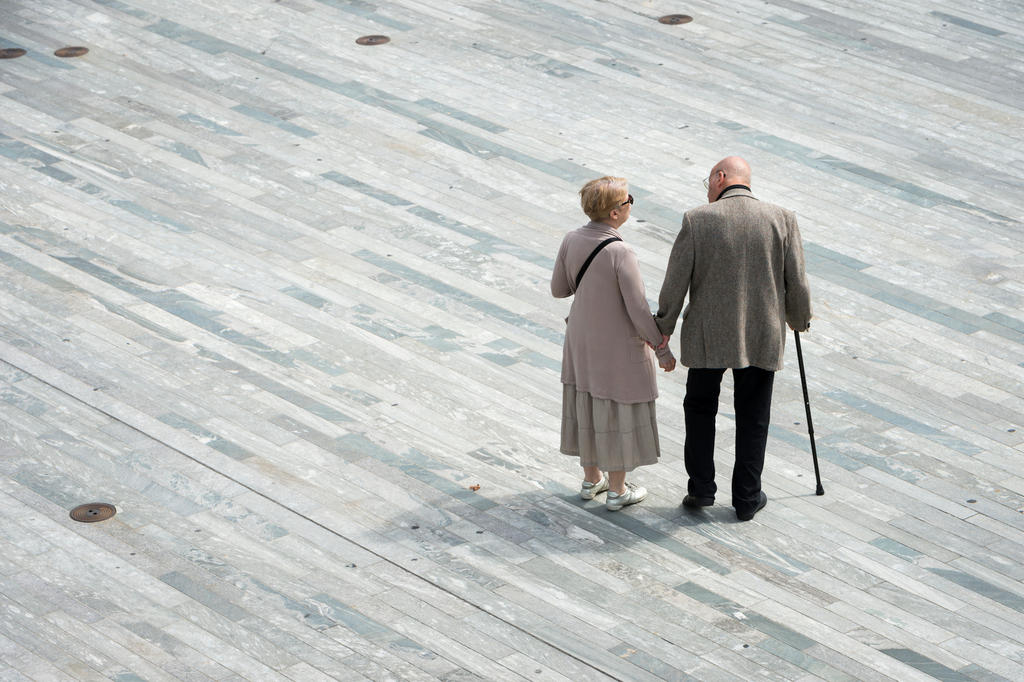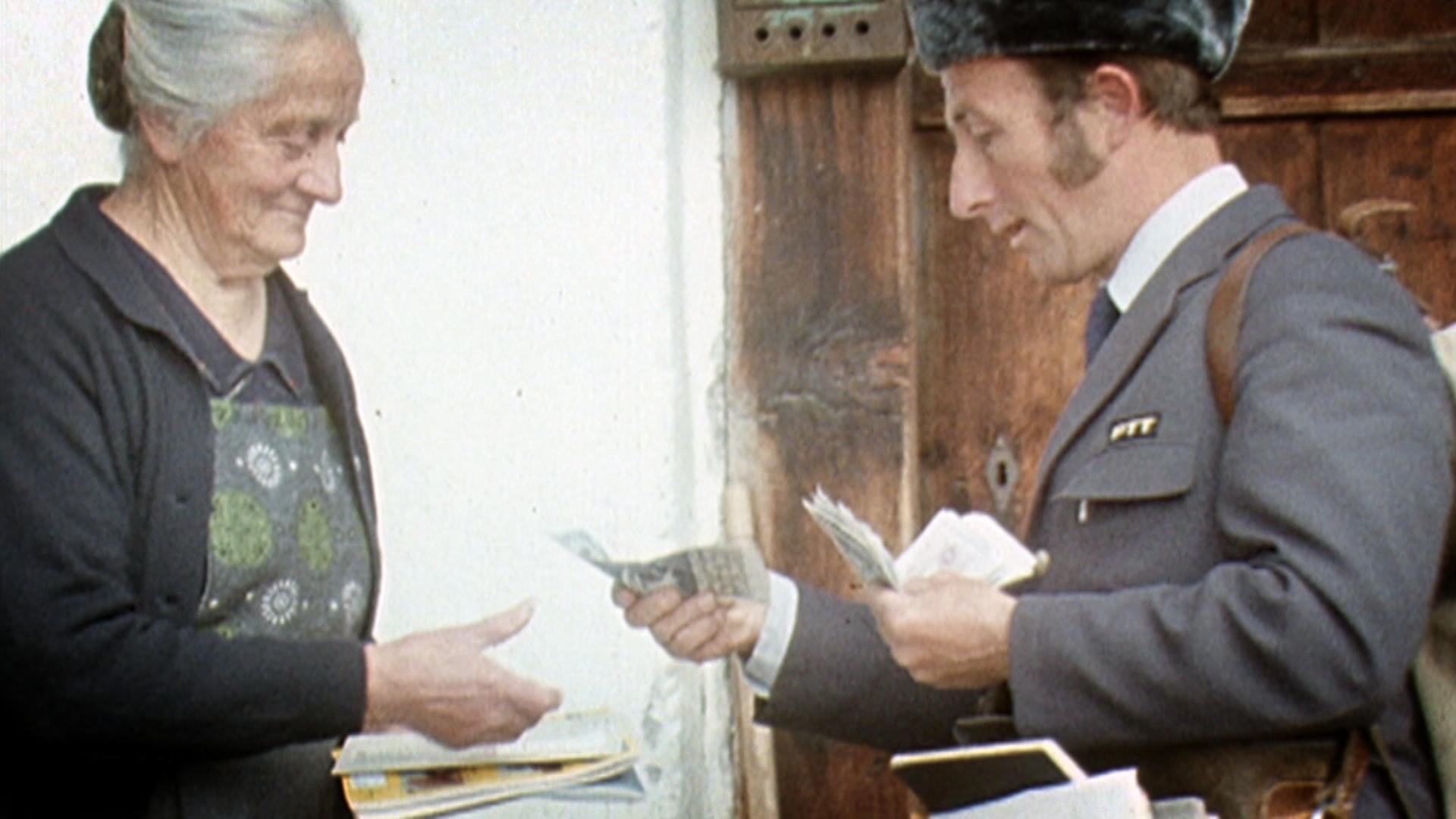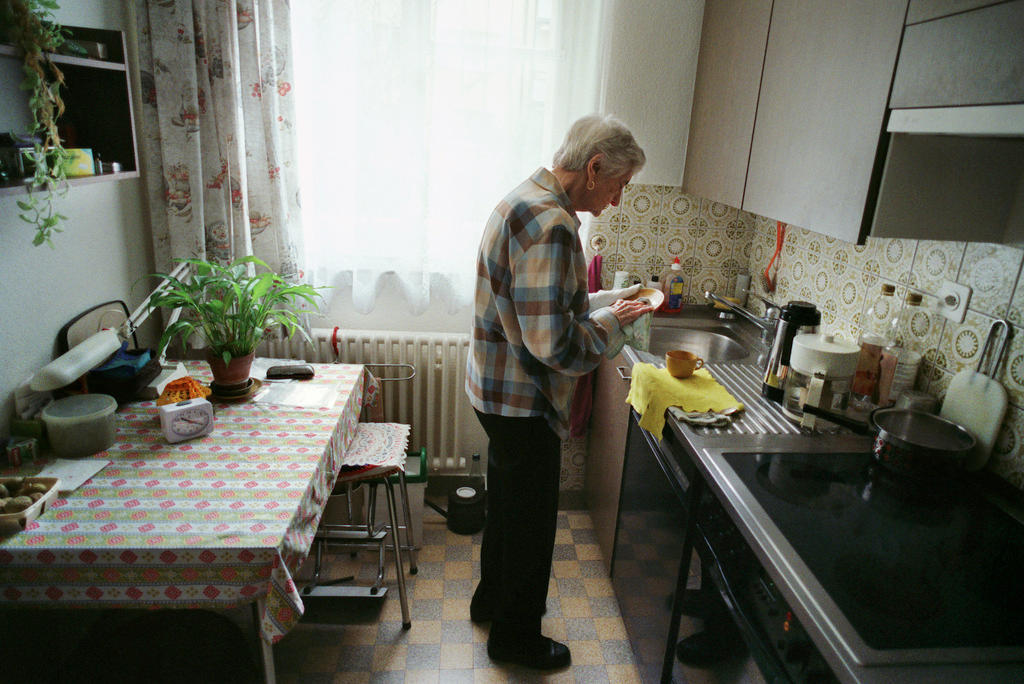Idea of bigger pensions is retired

Voters have clearly rejected a people’s initiative calling for a 10% boost in benefits from the state retirement fund – a move supported by the political left, but deemed far too costly by its opponents.
The increase would have affected the state pensions given to all retirees via the first pillar of Switzerland’s three-pillar retirement system (the other two pillars being occupational pensions and private savings).
The cost would have been an extra CHF4 billion ($4 billion) a year from 2018, increasing to CHF5.5 billion by 2030. However, a majority of cantons rejected the pensions hike on Sunday. The final result put 59.4% of the Swiss population voting no.
Breaking down the results revealed regional differences. All the German-speaking cantons voted against it, but a majority of the French-speaking cantons and the Italian-speaking canton of Ticino voted in favour of the initiative.
Political scientist Claude Longchamp told Swiss public television that there was not only a “Röstigraben” – language divide – in the results. People in cities had agreed more with the initiative than those living in the countryside.
The initiativeExternal link’s backers, which included the Trade Union Federation and leftwing political parties, had argued that the state pension plan needed adapting because occupational pensions were coming under financial pressure. They argued that those with low to middle incomes in particular rely on their state pensions to make ends meet.
Everyone is entitled to an old-age pension in Switzerland and the constitution states that the payments must be enough to cover basic living costs.
Reaction
Reacting to the vote, the president of the Trade Union Federation, Paul Rechsteiner, said that the greater support in the French and Italian-speaking parts of Switzerland showed that “reductions in pensions were out of the question for the population”.
The 40% vote in favour of the pensions hike was also a clear signal to parliament as it debates major reforms to pensions, he argued.
He rejected accusations that his initiative had been too extreme. The opponents’ campaign had used fear, particularly over how to finance the pensions increase, and had pitched generations against each other, he argued. “It was a fight of old against the young,” he said.
Old age pension boost: 36.4% yes 63.6% no
Green economy: 40.6% yes 59.4% no
Intelligence service powers: 65.5% yes 34.5% no
Turnout: 42.6%
Turnout: 42.6%Opponents, including the government, had stated the pensions hike would be too expensive and put more pressure on an already stretched social security system.
The government speaks
Interior Minister Alain Berset said on Sunday that the result showed that the people were aware of the problems facing pensions.
But he stressed that the government’s major pensions reform, which is being debated again in parliament on Monday, would be a more long-term and complete solution to the issue.
The reform standstill over pensions – which has been going on for 20 years – must be addressed; this requires a solution that gains the support of the majority, not an extreme solution, he added.
“The no to the initiative is a no to the expansion of the old age insurance system, so to pensions that are higher than they are today – because we cannot afford this,” the minister said.
Pension reform
The goal of the government’s Retirement 2020External link is to ensure the financing of pensions from 2020, when the Baby Boomer generation – those born in the 1950s and ’60s when the birth rate was high – will begin to retire, placing more strain on the pension system.
The increase in average lifespan also means that not only will retirees be drawing their pensions for longer, but the two main sources of pension funding – active workers and investment income – will decline.
The proposal includes raising the retirement age to 67 from 65 for men and 64 for women.
It was not the first time the Swiss were asked to decide at the ballot box on reforms to the state old age pension scheme. Over the past two decades, voters have rejected nine proposals – either to review its financing or to raise the retirement age to cope with an ageing population.
But it was the first time since 1995 that voters had the final say on a proposal to increase pension benefits.

In compliance with the JTI standards
More: SWI swissinfo.ch certified by the Journalism Trust Initiative













You can find an overview of ongoing debates with our journalists here . Please join us!
If you want to start a conversation about a topic raised in this article or want to report factual errors, email us at english@swissinfo.ch.